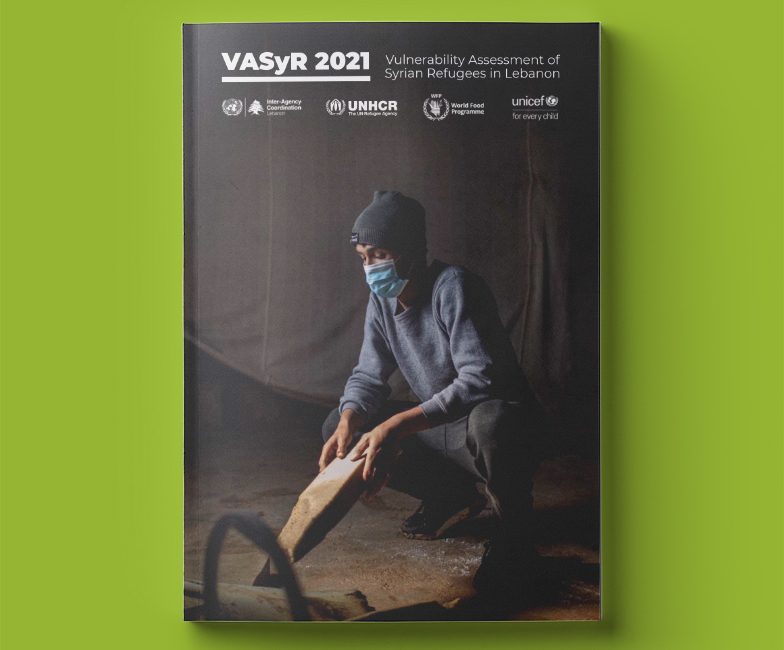The Vulnerability Assessment of Syrian Refugees in Lebanon (VASyR) analyzes a representative sample of Syrian refugee households in Lebanon to provide a multi-sectoral update of the situation of this population. Conducted annually, 2021 marks the ninth year of this assessment. The contents of this report, jointly issued by the United Nations High Commissioner for Refugees (UNHCR), the United Nations Children’s Fund (UNICEF), and the United Nations World Food Programme (WFP), show that the situation of Syrian refugees continues to worsen as Lebanon faces a compounded socio-economic and health crisis. With the currency depreciation, price spikes, and subsidy removals, nine out of 10 Syrian refugee households were not able to afford essential goods and services that ensure minimum living standards, despite increasing humanitarian support. Households continued to resort to negative coping strategies to survive, such as begging, borrowing money, not sending their children to school, reducing health expenses, or not paying rent. This survey indicates that, in 2021, more family members took poorly paid jobs, high-risk jobs, or extra shifts to make the same income that households made in 2020 while remaining heavily dependent on assistance. These coping strategies negatively affect resilience and the capacity to generate income in the future, making refugee families more vulnerable to food insecurity and more dependent on assistance.
- Lebanon
- 2021
- UNHCR, UNICEF, WFP
- Inter-Agency document
